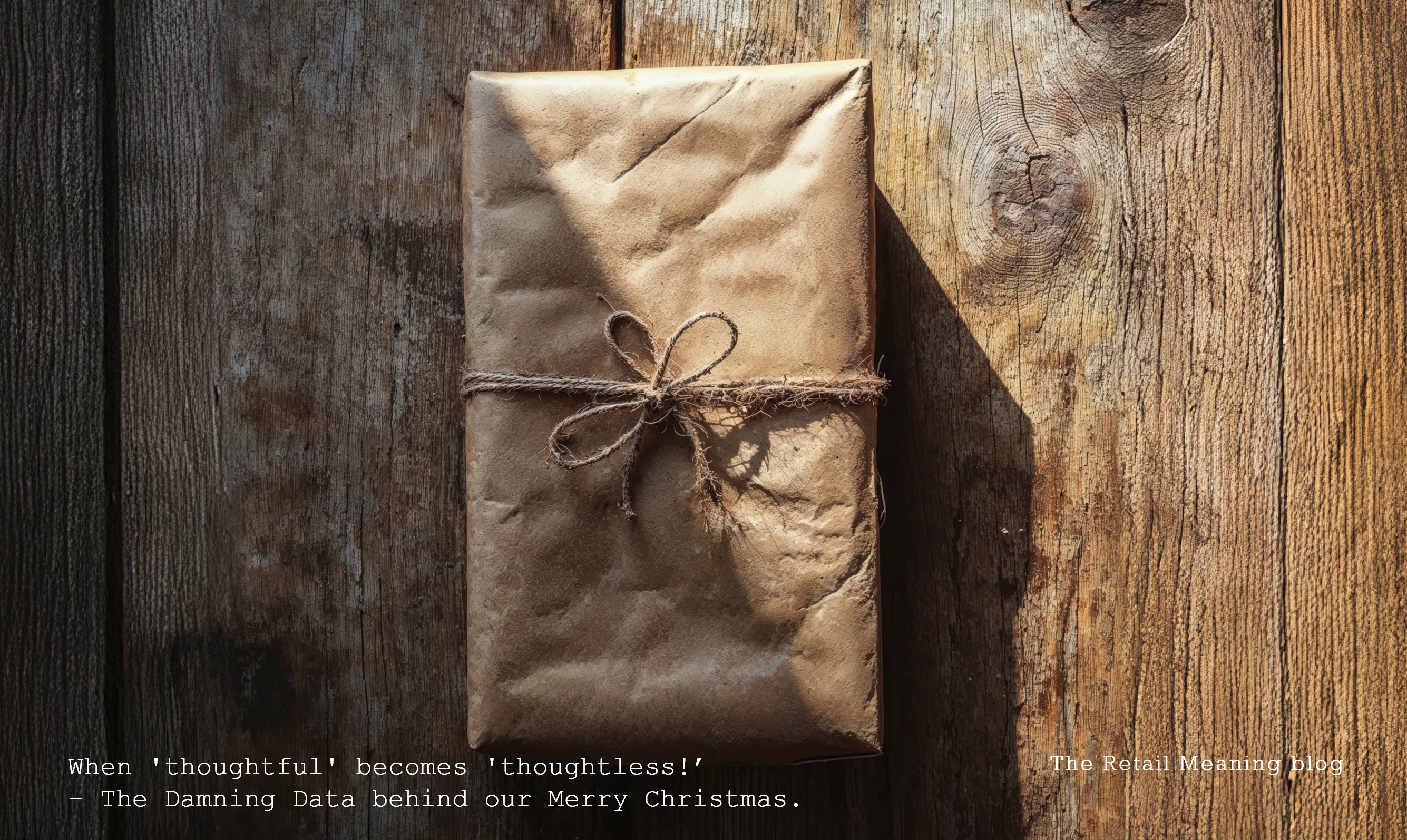British shoppers are expected to send back £1.5bn worth of Christmas gifts this year, according to new research by Manhattan Associates.
These are not the presents bought or the presents kept, this is the eye-watering figure of the presents that nobody wants.
And the data just keeps on giving…
- 23% of Brits exchange unwanted gifts for an alternative item
- 21% donate them to charity shops
- 19% regift to other people
- 17% store unwanted gifts away
- 12% return their items for a full refund
As per usual the editorials focus on the logistical and operational nightmare for retailers, and even the ’emotional’ trauma of customers having to return gifts that were not suitable.
And indeed the surprisingly small 12% returned for refunds, the whopping 21% given to charity shops, and 19% re-gifted show that not all is lost for the clothing, shoes, cosmetics and jewellery, that make up the majority of these gifts.
However the main story must be the totally unnecessary impact on the environment of all of this excess consumerism.
£1.5Bn worth of goods unnecessarily produced and shipped across the planet. £1.5Bn worth of goods packaged and delivered to shops or peoples’ homes. The huge amounts then re-packed and re-sent back to retailers, warehouses, re-sale and landfill.
This is a mindless industry sadly built around the well-intended but clearly uninformed thoughtfulness of others. Nor is this a moral judgement. I am as guilty as anyone of giving unwanted gifts.
The sadness really is that this micro-story of Christmas excess is just a small but startling reminder of how many of us have come to associate generosity and kindness only with the giving of physical things.
For sure, there are more experience gifts given now. Leisure activities, entertainment and socialising, many of which will be more gratefully received, enjoyed and remembered than throwaway consumables. And many more people this Christmas would have given second-hand, used, re-cycled and upcycled presents to their friends.
However, so much of the urgent re-modelling of the retail industry comes down to the simple fact that we need to buy less and so produce less.
There are so many ways we can show our appreciation, gratitude and kindness towards each other. Often just a call, and a chat are worth their weight in festive gold.
Christmas would seem to be the perfect occasion to explore some non-consumer goods options.
So I’m hoping for a ‘Green Christmas’ next year, where I’ll try to play my part in being truly mindful in my giving.
